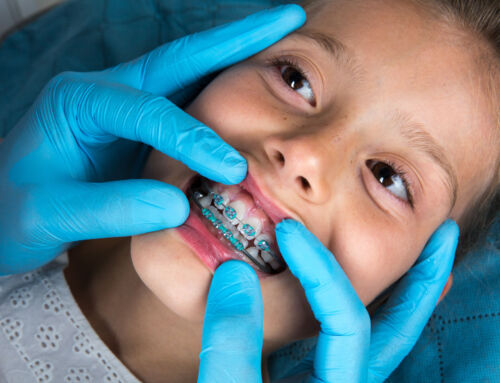When it comes to enhancing your smile or addressing dental alignment issues, deciding whether to see an orthodontist or a dentist can be pivotal. While both professionals play integral roles in maintaining oral health, their areas of expertise, especially concerning orthodontic treatment, differ significantly. At Ahava Orthodontics in Fort Worth, we understand the importance of making informed decisions about your oral health care. This guide aims to clarify the distinctions between orthodontists and dentists, helping you choose the right professional for your orthodontic needs.
The Role of Dentists and Orthodontists
Dentists: The General Practitioners of Oral Health: Dentists are akin to general practitioners in the medical field. They diagnose, treat, and manage your overall oral health care needs. This includes treating tooth decay, gum disease, and conducting regular cleanings and exams. Some dentists also offer basic orthodontic services, such as fitting for braces or Invisalign, especially if they have received additional training in these areas.
Orthodontists: The Specialists in Aligning Teeth and Jaws: Orthodontists are specialists who have completed additional years of training beyond dental school to focus specifically on diagnosing, preventing, and treating teeth and jaw alignment problems. This specialization equips them with the expertise to offer a wide range of orthodontic treatment options, from traditional braces to custom-made aligner systems and more complex orthodontic appliances.

Key Considerations in Choosing Between an Orthodontist and a Dentist
When you’re looking for a healthier, straighter smile, choosing the right care provider is essential. This decision often comes down to understanding the differences between general dentists and orthodontists in terms of the complexity of treatment they can manage, their experience and training, and the treatment options they offer. At Ahava Orthodontics, we believe in empowering our patients with knowledge to make informed decisions about their orthodontic care.
Complexity of Treatment
The nature and complexity of your dental issues significantly influence whether you should see a dentist or an orthodontist. General dentists are proficient in addressing minor dental alignments and cosmetic adjustments. Their expertise in overall oral health allows them to identify and treat common dental problems effectively, making them a good choice for simpler orthodontic procedures.
However, when it comes to more intricate orthodontic issues such as jaw alignment, bite correction, or comprehensive teeth straightening, an orthodontist’s specialized skills become indispensable. Orthodontists dedicate their practice exclusively to orthodontics, which involves not just the cosmetic aspects of straightening teeth but also the functional and physiological considerations of jaw structure and dental development.
Experience and Training
The distinction between dentists and orthodontists also extends to their educational background and training. All orthodontists are dentists first, but not all dentists are orthodontists. After completing dental school, orthodontists undergo an additional 2-3 years of full-time orthodontic residency, where they receive specialized training in the diagnosis, prevention, and treatment of orthodontic problems. This extensive training equips them with a profound understanding of facial growth and development, enabling them to devise effective treatment plans for complex orthodontic issues.
Dentists, while highly skilled in a broad spectrum of oral health services, have a more generalized training that covers all areas of dentistry. Some dentists pursue further education in orthodontics and can competently provide certain orthodontic treatments. However, their expertise in orthodontics might not be as comprehensive as that of a specialist who has completed a residency in the field.
Treatment Options
When it comes to the range of treatment options available, orthodontists are able to offer a wider variety due to their specialized focus. They stay at the forefront of the latest advancements in orthodontic techniques and technologies, from traditional metal braces to cutting-edge clear aligner systems like Invisalign. This specialization ensures that patients receive the most advanced and suitable treatments for their specific needs.
While some general dentists offer orthodontic solutions, such as minor teeth movement and clear aligners, they may not have access to the full spectrum of orthodontic appliances and technologies that an orthodontist does. The treatment options provided by dentists might suffice for patients with minor alignment issues, but those requiring more comprehensive care would benefit from the extensive array of options an orthodontist can provide.
Why Choose Ahava Orthodontics?
At Ahava Orthodontics, we pride ourselves on our specialist knowledge and commitment to providing the highest standard of orthodontic care. Our orthodontists, Dr. Andy and Shawne Barron, bring years of specialized training and experience to each treatment plan, ensuring personalized and effective care. Whether you’re considering braces for your child or exploring adult orthodontic options for yourself, our team is dedicated to guiding you through every step of your orthodontic journey.
At Ahava We Have the Best Pediatric Dentist and Orthodontist Around
Choosing between an orthodontist and a pediatric dentist for orthodontic treatment depends on various factors, including the complexity of the treatment needed and the level of specialized care required. For comprehensive orthodontic treatment that addresses more than just the cosmetic appearance of your smile, an orthodontist is typically the best choice. At Ahava Orthodontics in Fort Worth, we’re committed to ensuring that each patient receives the specialized care they need to achieve a healthy, beautiful smile. Contact us today to learn more about how we can cater to your orthodontic needs, and let us help you embark on a journey to a more confident smile.




